Singletracks has published some excellent articles over the years about choosing a bike shop, why to buy from a local bike shop (LBS), and reasons to buy online.

A major online retailer recently picked up the brand Niner, and when they recently sent out an advertisement for a $2500 Air 9 RDO, a friend and I pondered the implications for smaller shops who carry boutique brands like Niner or Pivot. “How can they compete with that?” we asked ourselves, and “how can a small LBS stay competitive in a bargain online marketplace?” I mean, who doesn’t like a good deal, but there are some very good reasons to buy your gear at a local shop that supports your riding community. But first, I have a few interesting stories to tell you.
Bad Shop
While living in Florida, I discovered that selecting a quality mountain bike LBS can be frustrating, because many shops cater exclusively to roadies. For that reason, I gave patronage during my tenure there to a small boutique chockablock with aspiring Cat 6 racers 🙂 The shop was close to home, and the guys/gals on the group rides were a tight-knit, amazing bunch to hang out with, which is really what kept that shop going… and still does. There was one problem, though: the shop owner, who we’ll call “Richard,” had a reputation for

being rather abrasive. Known by his loyal patrons simply as “Dick,” they frequently swapped stories on weekday rides about his unbelievable moody behaviors, making references to the more sanguine color of his saddle because he was periodically “on the rag” (no offense ladies). It was all rather funny, actually, but over the years he rubbed enough customers the wrong way that some of them smartly went away.
As you may have recently discovered, the mountain biking in Florida is actually pretty darn good, so a lot of the roadies at this shop were interested in knobbies and dirt as well. Unfortunately, “Dick” didn’t know, um, diddly about mountain bikes. Despite his acumen for fringe road racing, the lore was that he actually was an embarrassment to watch on even the smoothest of singletrack, cursing every little root and giving up early to go home. I can’t vouch for this personally, since he seemed allergic to the mere concept of riding on anything but the open road. Even worse, he praised the 31lb hardtail in his storefront as “sufficient,” which he could never seem to liquidate from his inventory, and berated you if you mentioned words like “S-Works” and “Stumpjumper” in the same sentence. True story. He would seethe if you came to the

shop with a part or piece of clothing you didn’t buy from him, and would call you out in front of other customers. I remember being in his shop one day discussing what expensive wheels he thought I needed in order to “keep up” on our group rides, when he looked out of the front window at an approaching customer and tersely barked: “what the #$%@ does this guy want?!” Needless to say, Dick was just being a, well, you know… a “Richard.”
Nevertheless, I had little choice but to trust him with my bikes, and I gave him thousands of dollars over the years, though he once frankly told me that I wasn’t a “loyal customer,” citing purchases that I made elsewhere. He took every opportunity to insult the quality of my trusty old Titus that I deftly rode and maintained for years.
Also, he simply could not make eye contact with women, even when selling them a bike, and would talk to their male companions instead, which both men and women found irritating. He also made jokes about the cars that customers drove, and flaunted the hideously ill-painted German sports car that his wife helped him buy. I could go on and on, but you get the picture.
By now, you are probably wondering why I, or anyone, would stay and support his business. I guess the answer to that question is complex. There was a special camaraderie in our riding group: most of us wanted to support an LBS, our options were limited, and we recognized that bikes can be complicated to work on. He wasn’t that bad all of the time, and we desperately needed an LBS. But strangely, most of us just learned to tolerate his eccentricities, and even morph them into comic relief.
The eventual realization that there was something way better out there is actually what promoted me to write this article: sometimes picking an LBS is complicated for social, geographical, and financial reasons. You need to decide what is most important for you and the way that you ride, and sometimes you need to choose between what may be the lesser of many evils. Honestly, for some, buying merchandise online may still be the best option.

Expertise
When it comes to looking for a good quality, reputable local bike shop, this is the #1 reason to shop at an LBS, and the most important factor in selecting one. It simply is not possible for online retailers to correctly fit your bike, then make adjustments as your riding style evolves. A reputable LBS can also recommend things like what tires you need for local trails in different seasons, tell you what trails are rideable after rain or snow, or let you demo bikes on those same trails. They should be able to answer fairly detailed questions about products and how they function and what they are made for.
You know to take your business elsewhere if you know more than the shop employees. About three years ago I went into another shop in Florida, which specialized in mountain bikes, asking for a simple 180mm post-mount bracket for my disc brake. The actual owner took almost 30 minutes looking it up on his computer, citing that it was a complicated endeavor to find “just the right one,” and wanted to charge me $75 for parts and labor to put it on. Wrong, pal… see ya.
Ideally, your bike shop should be able to give you an education, especially if you want to do something crazy like put a Di2 derailleur on a downhill bike because some guy did it on the internet. Expertise is more than just product knowledge, it is the bike industry equivalent of “street smarts.” A good LBS can recommend products like forks and tires for certain terrain, and give personal examples of why something just doesn’t work. Shop employees are really good product testers. Ask them before you fork over your own hard-earned scratch.
Selection

Selection may be a factor that can make or break an LBS for some, but it shouldn’t be a deal breaker. Here’s why: unlike buying online, a good shop can work with you to get you exactly what you want and need, and may have loaner items like saddles or stems to swap out to get the best fit for your bike. That’s invaluable. You should be able to quickly recognize if you are in the right place or not when you look at what they keep on the shelves, especially if your world revolves around niches like single-speeds or fat bikes.
Keep in mind that a massive inventory isn’t a stand-alone measure for your personal needs, and combing through too much junk on the shelves can be overwhelmingly tempting. However, if you stumble across a friendly shop that carries most of the parts you require, that is usually a good enough reason to give them your business instead of shopping online.
Price
Understandably, everyone wants a good deal, and most riders recognize that an LBS has to make money to stay in business. Not everyone can get a brother-in-law discount every time, unless you are employed there. Consider that it actually works in your favor to pay MSRP every once in a while, because a good LBS will reward faithful patronage with discounts, free swag, insider information on products/trails/events, bike rentals when friends come into town, and giving you first rights to products that no one else can get their hands on yet. If your shop never gives you a break despite consistent and loyal patronage, you are probably in the wrong place. It helps to bring the workers/mechanics a case of PBR every once in a while, too… you’d be surprised at how little they make.
Customization

This is not important to everyone, but an LBS earns style points when they can do things like throw a Pike fork on a Surly Krampus and bling a bike out… and get away with it. Not all local shops can customize bikes like a boss, but the ones that do it well are usually the ones that are knowledgeable and have excellent mechanics. In a world where a lot of products look similar, it’s nice when someone injects a little creativity and gets your bike noticed.
Some shops actually build custom frames or parts. This may also be important to you as your riding style progresses. You may also like to find a bike shop that has rare offerings, like bamboo fat-bikes or hand-built wheels. Though you may not have an interest in purchasing them, it is fun to hold one, and maybe take a spin around the block. You never know, though: that is exactly how I left my LBS with a carbon Salsa Beargrease XX1 in tow, and I still don’t know how it all went down. It happened so fast….
In Part 2, I continue to offer some unsolicited advice about what to look for in a reputable LBS, injected with a few kitschy stories and stories from the Good Shop…
Your turn: Have you had a bike shop experience? Please feel free to share in the comments below, but keeping things anonymous isn’t a bad idea 🙂


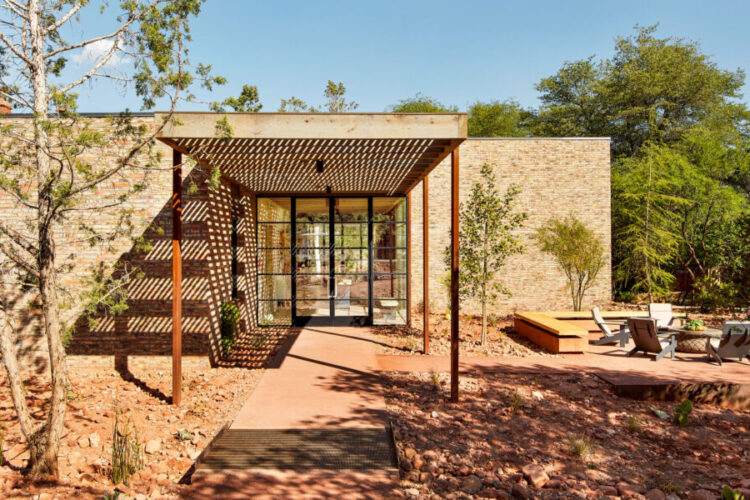
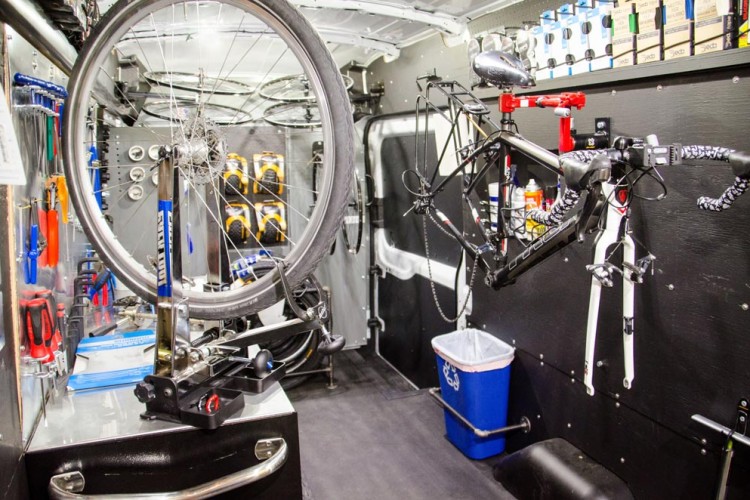
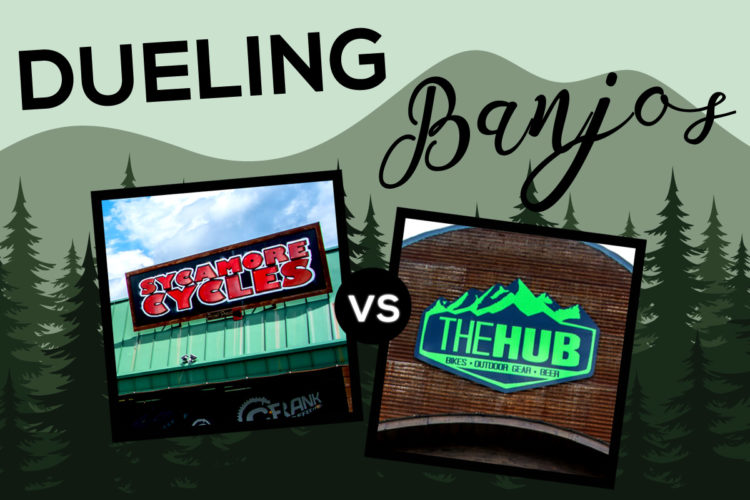
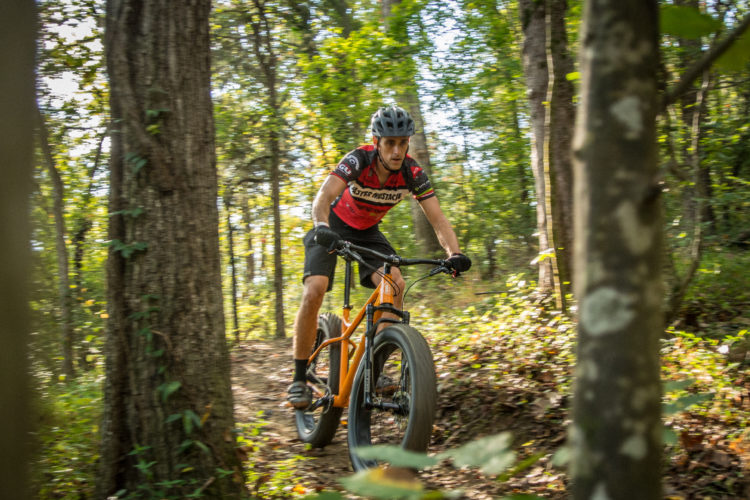



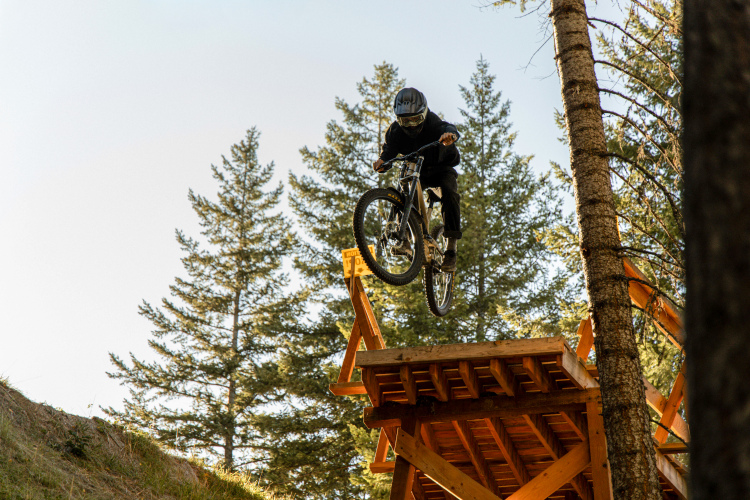

12 Comments
Apr 14, 2014
Apr 15, 2014
Apr 14, 2014
I have also experienced the "bad" bike shop as well. I thought it was a good one until I relocated across the country and found my current LBS. This article does a great job of pointing out things that you should look for as well as contrasting what bad service looks like.
Apr 15, 2014
Apr 14, 2014
Apr 14, 2014
Apr 14, 2014
Apr 15, 2014
Mmmm, maybe that's it, the owner must be named Travis for it to be an awesome shop :lol:
Apr 15, 2014
Apr 16, 2014
I needed a RD hanger one time but the shop I walked into didn't have it. Granted, they also didn't carry the brand of bike I had so I shouldn't have been surprised, but why is there so many different kinds of RD hangers? You would think companies would only have a handful of styles across all their bikes (mtn, road, cruiser, etc) but NO, they have multiple styles across the same model!
Sorry, rant over.
Apr 14, 2014
Apr 14, 2014
I have a couple shops that I frequent and one is more convenient than the other but the other has better mechanics. One has better selection while I know the guys in the other shop a little better. So I pick and choose based on what I need at the time.